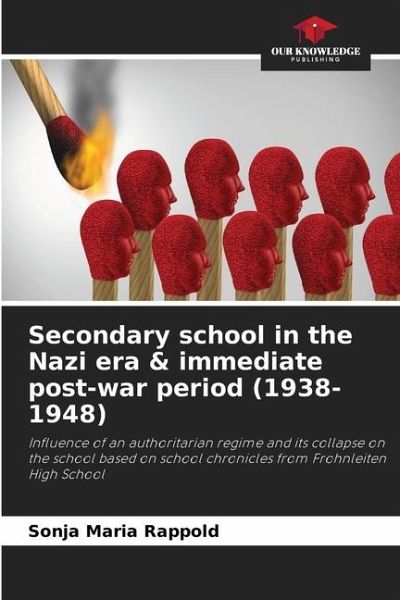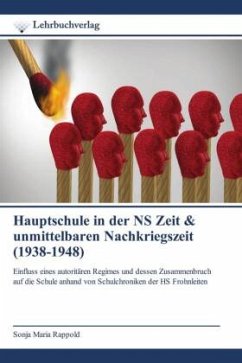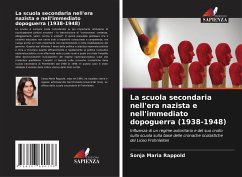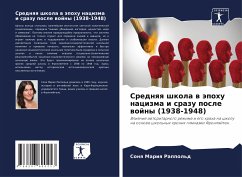
Secondary school in the Nazi era & immediate post-war period (1938-1948)
Influence of an authoritarian regime and its collapse on the school based on school chronicles from Frohnleiten High School
Versandkostenfrei!
Versandfertig in 6-10 Tagen
29,99 €
inkl. MwSt.

PAYBACK Punkte
15 °P sammeln!
Schools have always been regarded as the most important institution of secular political socialization - the transmission of "knowledge, beliefs, attitudes, values, norms and symbols". It is therefore a plausible assumption that the education system not only serves to impart knowledge and skills, but also plays an important role in maintaining and stabilizing rule. This thesis deals with the topic of National Socialist school policy and aims to show how effectively and rapidly National Socialist school policy was established in rural schools and what impact the (socio-)political decisions/even...
Schools have always been regarded as the most important institution of secular political socialization - the transmission of "knowledge, beliefs, attitudes, values, norms and symbols". It is therefore a plausible assumption that the education system not only serves to impart knowledge and skills, but also plays an important role in maintaining and stabilizing rule. This thesis deals with the topic of National Socialist school policy and aims to show how effectively and rapidly National Socialist school policy was established in rural schools and what impact the (socio-)political decisions/events of the National Socialist regime had on everyday school life. This is to be recorded on the basis of school chronicles from the secondary school in Frohnleiten from 1938 to 1948. The method of historical source criticism of written sources was used here.














